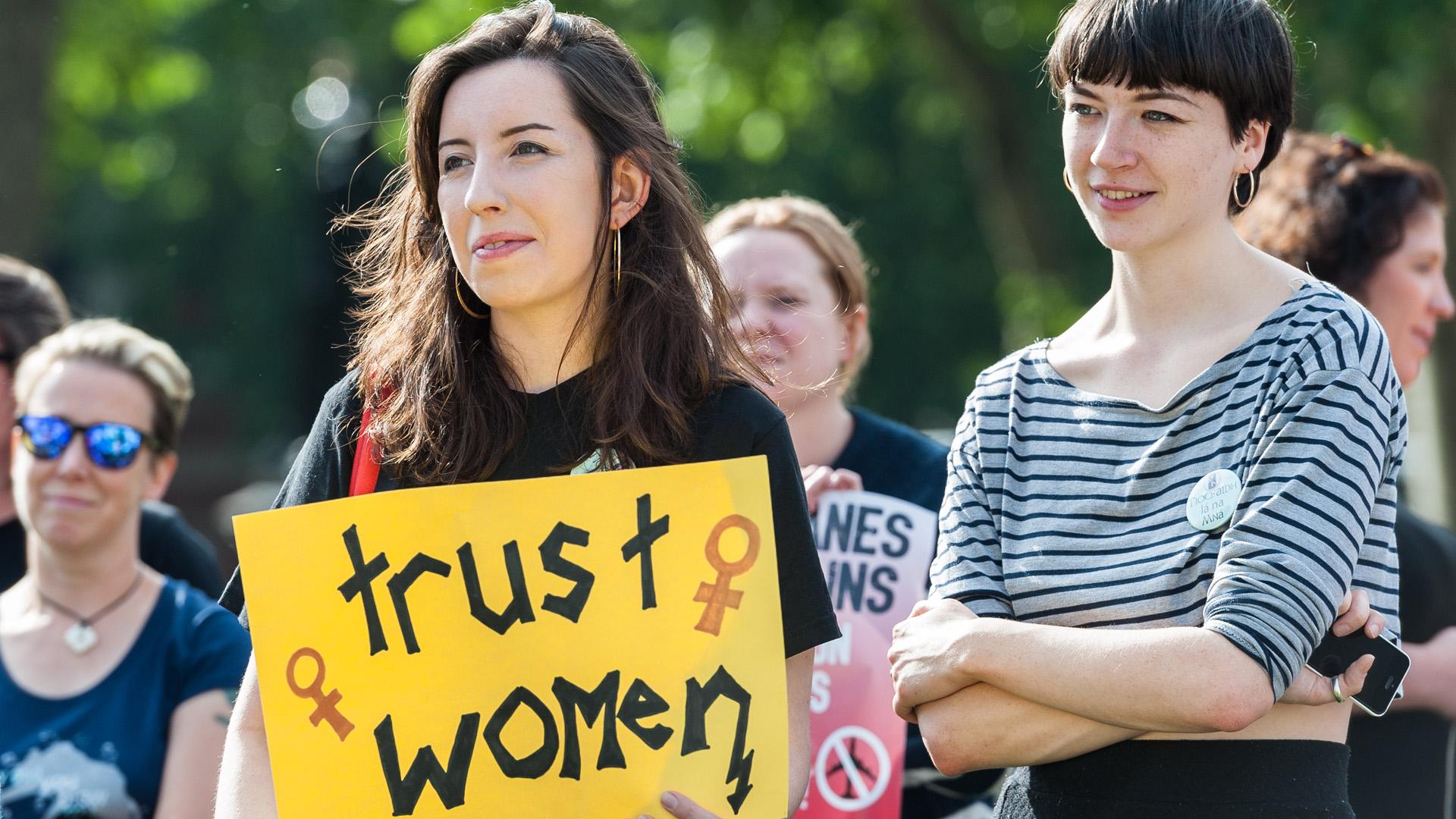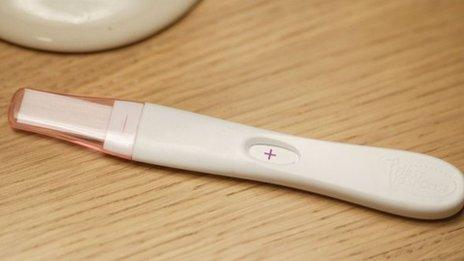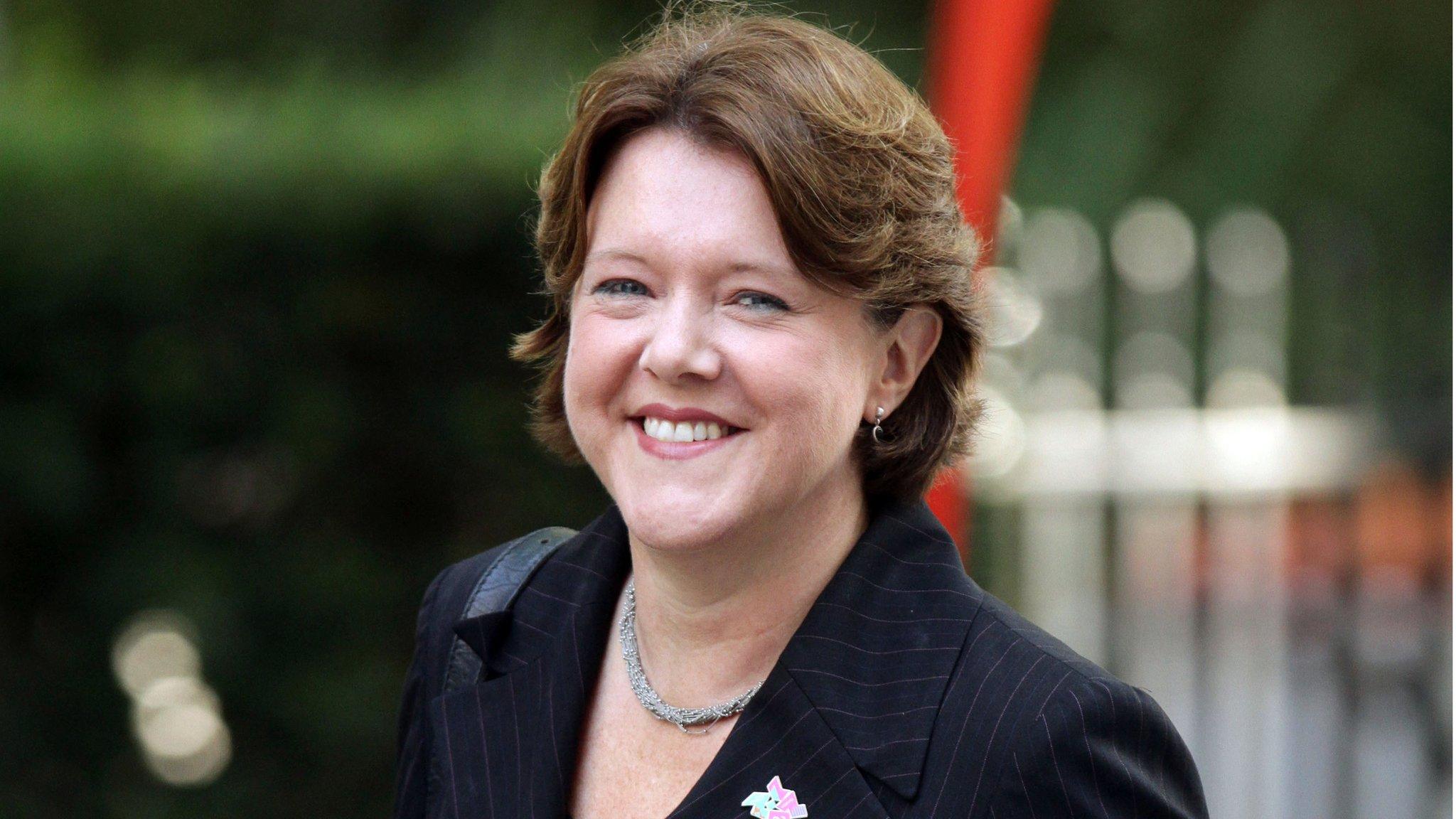Marie Stopes private abortion clinic to open in Belfast
- Published
The first private clinic to offer abortions to women in Northern Ireland is due to open next week.
The service, run by Marie Stopes, will operate in the centre of Belfast from 18 October.
It says it will provide terminations within Northern Ireland's current legal framework - abortions are not illegal but are very strictly controlled.
An anti-abortion group has called for the clinic to be shut down, but Abortion Rights welcomed its opening.
Northern Ireland, unlike the rest of the UK, is not covered by an Abortion Act.
Abortions can be carried out only to preserve the life of the mother or if continuing the pregnancy would have other serious, permanent physical or mental health effects.
There is strict assessment regarding any impact on mental well-being and the woman must consult with two clinicians.
The Marie Stopes clinic says it will carry out medical, not surgical, procedures only up to nine weeks gestation and only within the existing legal framework.
It says that the health professionals in the clinic will be from Northern Ireland and that they will make the assessments, although the views of the woman's own GP will be taken into consideration.
The clinic's services will also be available to women from the Republic of Ireland, if they meet the legal criteria in Northern Ireland.
Northern Ireland Health Minister Edwin Poots said: "I note that Marie Stopes International state very clearly that they will work within the law.
"An operation in Northern Ireland for the termination of a pregnancy may not result in criminal liability when it is necessary to preserve the life of the woman or there is a risk of real and serious adverse effect on her physical or mental health, which is either long term or permanent.
"This condition applies no less strongly before nine weeks than longer into the pregnancy."
'Grave risk'
Only 1% of abortions in England and Wales are carried out because the child might be born with a serious disability.
The former Progressive Unionist Party leader, Dawn Purvis, who is the centre's programme director, said the Belfast clinic would be "providing early medical abortion within the law as it exists in Northern Ireland".
Ms Purvis said the clinic would also provide advice and treatment for sexually transmitted disease and reproductive health, but it was prepared for any possible controversy.
"Our clients' needs are of paramount importance to us and how they access our services in a safe and secure route," she said.
"We will be focusing on this and will obviously carry out a risk assessment of our needs and our security and we'll have to revise those as time goes on.
"But we would hope that any client who comes to us can do so and access those services freely, safely and can come to a centre that will be supportive and non-judgemental."
Ms Purvis said the regulatory body, the RQIA, had been informed of and consulted on plans for the centre.
But Bernie Smyth, of the anti-abortion group Precious Life, told the BBC members wanted the centre shut before its scheduled opening.
'Huge emotional cost'
However, the clinic has been hailed as "groundbreaking" by Darinka Aleksic, of the Abortion Rights group, who said women in Northern Ireland were "treated like second-class citizens when it comes to abortion".
"Having to travel [to the rest of the UK] or further abroad to access safe, legal abortion exacts a huge financial and emotional cost," she said.
"Over 50,000 women have had to make this journey over the past 40 years and it is an injustice that must not be allowed to continue.
"The opening of this centre will not solve all these problems and the fight for Northern Irish women to have the same rights as women in England, Scotland and Wales has a long way to go. But this is a real step forward."
MLA Jim Allister said he believed that Marie Stopes was attempting to extend the availability of abortion.
Marie Stopes' Dawn Purvis says there is a great need for integrated family planning in Northern Ireland
Mr Allister agreed the group was pro-choice, "except for the unborn child, who has no choice, in their view, and who should be put to death, because that's what abortion is".
A Department of Health spokesperson said it would be a "matter for the RQIA" to determine if the clinic needed to be "registered for regulation and inspection by RQIA".
"The department would encourage anyone who has concerns or is seeking advice or treatment regarding any of these areas to contact their GP, local family planning clinic or genito urinary medicine clinic," the spokesperson said.
In August, Mr Poots told the Stormont Assembly that between 2006 and this year 262 pregnancy terminations had taken place.
The strict rules on abortion in Northern Ireland do not prevent women from travelling to the rest of the UK for the procedure.
A 24-week limit for abortion applies in England, Wales and Scotland, where abortions are allowed under certain conditions, including that continuing with the pregnancy would involve a greater risk to the physical or mental health of the woman, or her existing children, than having a termination. The permission of two doctors - or one in an emergency - is also needed.
Abortions after 24 weeks are allowed in Britain but only in extreme circumstances - if there is grave risk to the life of the woman, evidence of severe foetal abnormality, or risk of grave physical and mental injury to the woman.
Figures for 2011, show that just over 1,000 women travelled to England and Wales for terminations.
No figures are available for the Northern Ireland women who availed of so called "back-street abortions" or who procured abortion-inducing medication online.
- Published11 October 2012

- Published22 October 2019

- Published24 September 2012

- Published3 October 2012
